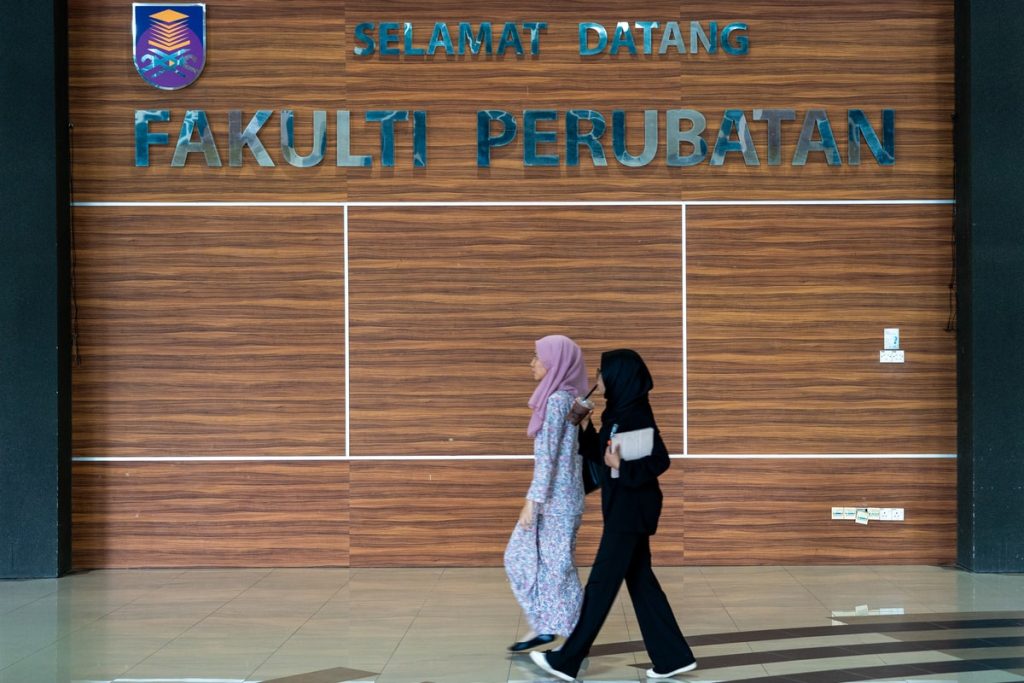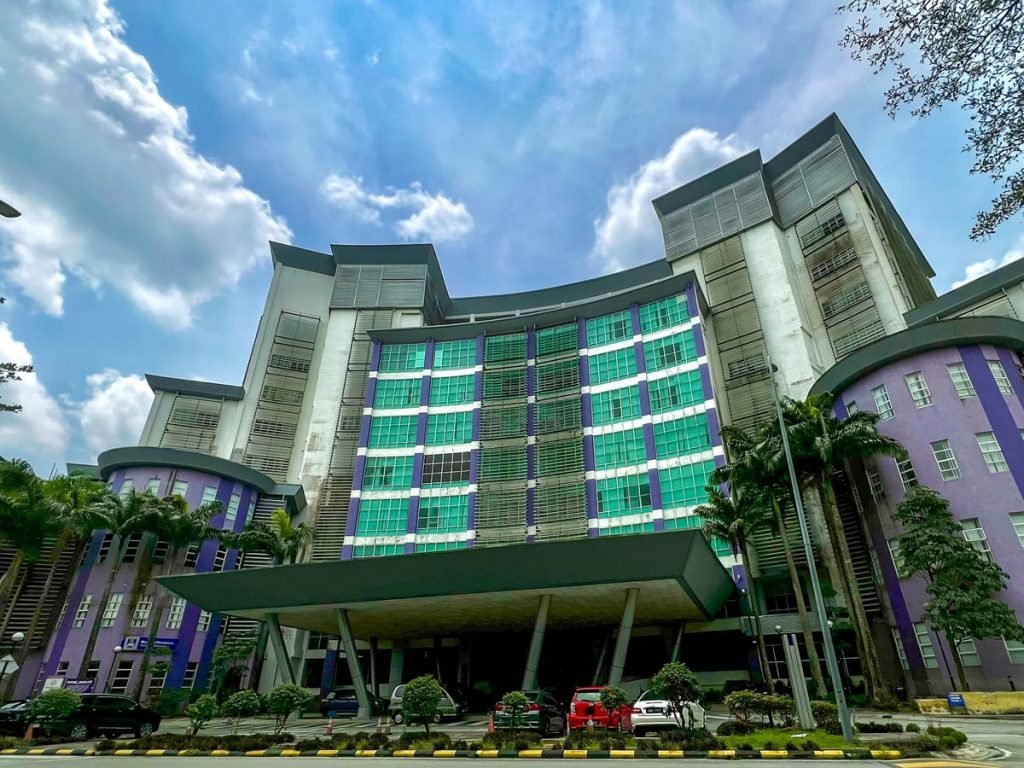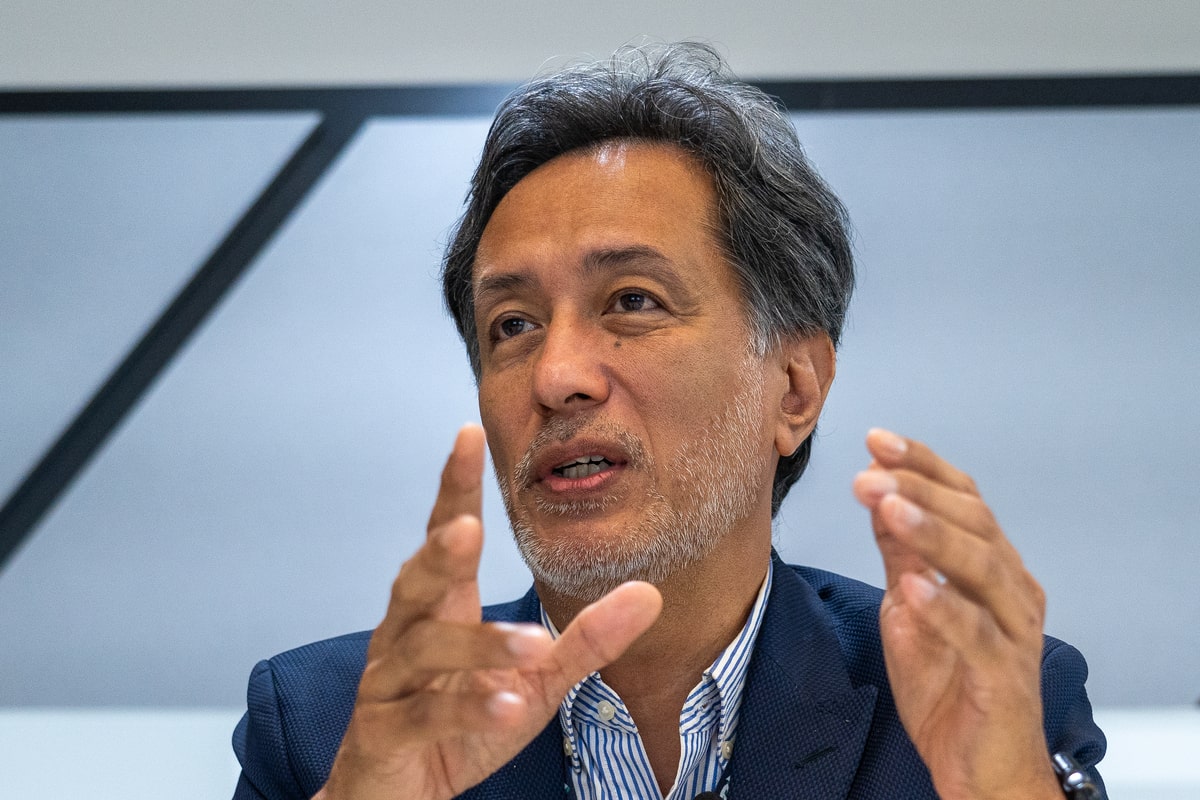PUNCAK ALAM, April 25 — Universiti Teknologi MARA (UiTM) is agreeable with “temporarily” opening up its cardiothoracic surgery postgraduate programme with the National Heart Institute (IJN) to non-Bumiputera parallel pathway trainees and graduates, a UiTM professor said.
Prof Dr Raja Amin Raja Mokhtar – who is on the Board of Studies of the UiTM-IJN cardiothoracic surgery postgraduate programme – said after speaking to UiTM’s vice-chancellor and the chairman of the UiTM board, they agreed for the Bumiputera-only public university to open admissions to non-Bumiputera or non-Malays for a limited period of time, until the opening of a similar programme at Universiti Malaya (UM).
He also said the proposal of opening up the UiTM-IJN cardiothoracic surgery postgraduate programme to everyone across race was made after the Ministry of Health (MOH) and the Ministry of Higher Education (MOHE) requested UiTM for a solution.
This was due to a one-year delay for the first two cohorts of UiTM-IJN trainees when most MOH centres (except one in Kuantan, Pahang) refused to take in these trainees for cardiac surgery postings, including some who were working in the MOH, but had accepted parallel pathway trainees instead.
“So we sat down, cracked our head, then we go and speak to the Vice-Chancellor, the Board, chairman of the Board of UiTM. They said, ‘Well, we’ve discussed, I think we agree, we can open the door temporarily, one time, using whatever clause or through the private side or whatever, to accept the non-Bumi, to help them, because [of] the need of the nation’,” Dr Raja Amin told CodeBlue during an interview at Hospital Al-Sultan Abdullah UiTM Puncak Alam last Monday.
“So UiTM is actually opening its doors to bring in everybody, all 30 [cardiothoracic surgery parallel pathway trainees and graduates], bringing them in. We map them back. If you’re first year here, you go first year here. If you’re third year, you go here. We’re going to map everybody into the national programme. When UM is ready, then they [non-Bumiputera] can choose UM”.
Malaysia’s first and only local university cardiothoracic surgery postgraduate programme to produce cardiothoracic surgeons is run by UiTM-IJN, while the other cardiothoracic surgery specialist training route – the parallel pathway programme run by the MOH with a foreign royal college – is not recognised by the Malaysian Medical Council (MMC). Opponents of the parallel pathway have raised issues of British “colonialism” in arguing against recognition of the parallel pathway.
Dr Raja Amin explained that the 30 plus cardiothoracic surgery trainees and graduates of the Royal College of Surgeons of Edinburgh (RCSEd) across race can apply to the UiTM-IJN programme for credit transfer and curriculum mapping of their previous training at the overseas royal college. This curriculum mapping means parallel pathway trainees or graduates do not necessarily have to go through the entire six-year programme by UiTM-IJN.
Parallel pathway graduates, he said, can obtain their cardiothoracic surgery qualification from UiTM-IJN within just six months to a year “easily” via credit transfer and curriculum mapping.
Dr Raja Amin also denied allegations that parallel pathway trainees would be charged RM100,000 to be absorbed into UiTM-IJN’s programme. He said UiTM-IJN hasn’t decided on how much to charge parallel pathway trainees yet, as none have been absorbed so far, but it will likely be the same amount charged to existing students of the programme that is “much less” than RM100,000.
UiTM-IJN’s cardiothoracic surgery postgraduate programme comprises a two-year Master in Surgical Sciences (Cardiothoracic) and a four-year Doctorate in Cardiothoracic Surgery.
The programme has received provisional accreditation from the Malaysian Qualifications Agency (MQA) and, according to programme director Prof Dr Zainuddin Md Wazir, is expected to receive full accreditation when the first cohort of students reaches their final year and MMC recognition, due to rigorous documentation of the programme. Its graduates – the first cohort is expected in 2026 – can then apply to register as specialists on the National Specialist Register (NSR).
UiTM signed a memorandum of understanding (MOU) with Universiti Malaya Medical Centre (UMMC) in 2021 to help develop a curriculum for UM to start a cardiothoracic surgery postgraduate programme. The aim of both universities is to form a Conjoined Board and to run the cardiothoracic surgery postgraduate programme as a single one offered by both institutions and IJN.
In a separate interview with CodeBlue, Dr Zainuddin, who is Head of Department of Cardiovascular and Thoracic Surgery at UiTM, said Universiti Malaya recently presented its curriculum to the MQA panel.
‘Number’ Of Applicants Needed To Kickstart Process For UiTM Senate Approval For Non-Bumi Students

Dr Raja Amin – who is a senior consultant cardiothoracic surgeon at UiTM’s Department of Cardiovascular and Thoracic Surgery – urged non-Malay cardiothoracic surgery parallel pathway trainees and graduates to apply to UiTM, saying the postgraduate programme needs to have a “number” of applicants to kickstart the process for obtaining the university’s Senate approval to open it up to non-Bumiputera students.
One non-Malay parallel pathway trainee at UMMC did apply to UiTM, but their application was not processed because the trainee then decided to put their application on hold. So far, there are no applications at all from cardiothoracic surgery parallel pathway trainees or graduates to transfer to UiTM.
“We want to see the number of people interested to join. And then we’ll take this data and say to the Senate, look, we have this non-Malay who wants to join UiTM because of the current situation. We need to solve it for the sake of the nation,” Dr Raja Amin said.
“We need to get that number. If nobody wants to apply, there’s nothing for us to bring forward”.
Six of eight RCSEd cardiothoracic surgery trainees and graduates working as clinical fellows at IJN are non-Malays. Two graduates at IJN with the Fellowship of the Royal College of Surgeons of Edinburgh in Cardiothoracic Surgery, along with two others working in the MOH, took the MMC to court last month after the regulator rejected, last December, their NSR registration applications on the basis of non-recognition of their qualification.
According to Dr Raja Amin, Malaysia only has one cardiothoracic surgeon per 600,000 population. If private practitioners are excluded, the ratio goes up to one cardiothoracic surgeon in the public health service for every one million people.
Thailand and the United Kingdom, as well as other developed countries, target one cardiothoracic surgeon per 250,000 population. Adopting this target translates to about 100 to 150 surgeons needed in Malaysia in the next 10 years; there are about 60 cardiothoracic surgeons currently across the public and private sectors.
Dr Raja Amin stressed that he would not allow racial elements into the UiTM-IJN cardiothoracic surgery postgraduate programme, believing that it needs to be opened up to all regardless of ethnicity to address the country’s dire shortage of cardiothoracic surgeons.
“But we need to get the Senate to approve. For the Senate to approve, the Senate will speak to the Yang di-Pertuan Agong, settle; the Yang di-Pertuan Agong is our Chancellor anyway.”
Dr Raja Amin, who is also president of the Society of Thoracic Surgeons in Malaysia, reiterated that he had spoken to the UiTM Senate, board chairman, and VC, all of whom told him “yeah, we don’t see any problem”.
“We checked with the legal side. We can take in, but actually it has to be with permission from the Yang di-Pertuan Agong or the Majlis Raja-Raja, but we can discuss it. In general, they [UiTM Senate, board chairman, and VC] agree.”
He explained various possible routes for non-Bumiputera students to be admitted into the UiTM-IJN cardiothoracic surgery parallel pathway programme, such as the one taken by international students or the private wing of the university. According to UiTM’s website, the university offers postgraduate education to international students, separate from postgraduate for Malaysians.
“Basically I’m trying to say, it is not written in stone; it can be done. You don’t have to go and change Akta 153. There are ways of coming in,” Dr Raja Amin said, referring to Article 153 of the Federal Constitution that states it is the responsibility of the Yang di-Pertuan Agong to safeguard the special position of the Malays and natives of Sabah and Sarawak, and the legitimate interests of other communities.
The Senate, chaired by the Vice-Chancellor, is the highest authority in UiTM for all academic matters. The current VC is Shahrin Sahib, while the chairman of the board of directors is Prof Emeritus Raduan Che Rose. UiTM’s chancellor is the Yang di-Pertuan Agong, who is currently King, Sultan Ibrahim Sultan Iskandar.
‘Until UM Is Ready, We Keep Our Door Open’

Dr Raja Amin’s open remarks at his interview with CodeBlue come amid the government’s plans to amend the Medical Act 1971 in a bid to recognise the parallel pathway for medical specialty training. Health Minister Dzulkefly Ahmad and Higher Education Minister Zambry Abdul Kadir plan to submit a joint Cabinet memorandum on the bill.
CodeBlue asked Dr Raja Amin if he believed it was more politically feasible for UiTM to open up the cardiothoracic surgery postgraduate programme to non-Malays than to simply approve the parallel pathway for graduates’ NSR registration.
“I think opening up one time to clear this up is a better option because sooner or later, UM will be ready,” Dr Raja Amin said.
“But we also tell UiTM, ‘Listen, until UM is ready, we keep our door open, keep bringing, allow our people in, just for the sake of the nation for this time’. Whereas, if you amend the law, you’re opening other floodgates which you don’t know what’s going to happen, and the early signs are there,” he added, referring to the proposed Medical Act amendment bill and allegedly unsafe parallel pathway training.
The senior consultant cardiothoracic surgeon said he has also spoken to a few groups of “senior people” at UiTM, some of whom are “a bit more ultra” than others, who nonetheless supported the proposal to temporarily open up the UiTM-IJN cardiothoracic surgery postgraduate programme to non-Bumiputera, pending the development of Universiti Malaya’s programme.
“The moment we mentioned this, they said okay, because I think generally, most people are reasonable. If you say, from now on, we open the doors, maybe they don’t agree because they feel it’s sacred,” Dr Raja Amin said.
“But we say it’s a one-time thing because this is a problem in the country. We need these doctors, we need these surgeons. We need to open it, train them properly, and let them go out. Then, once UM is ready, we close the door”.








